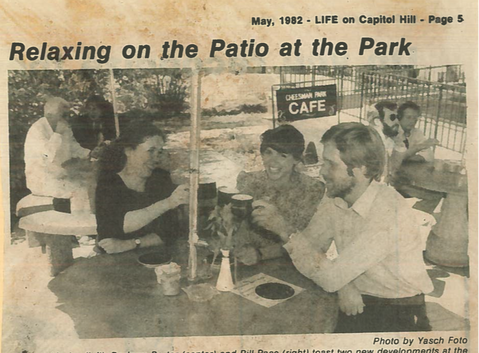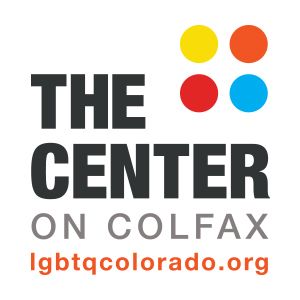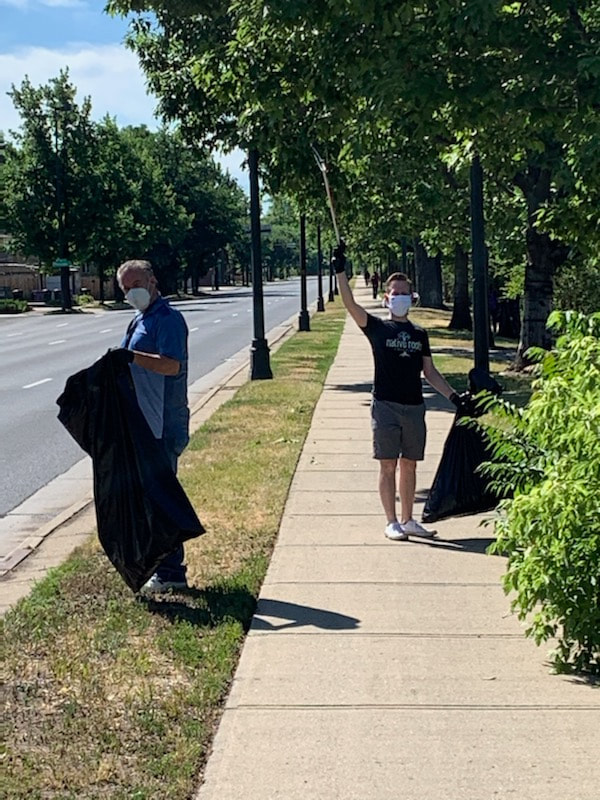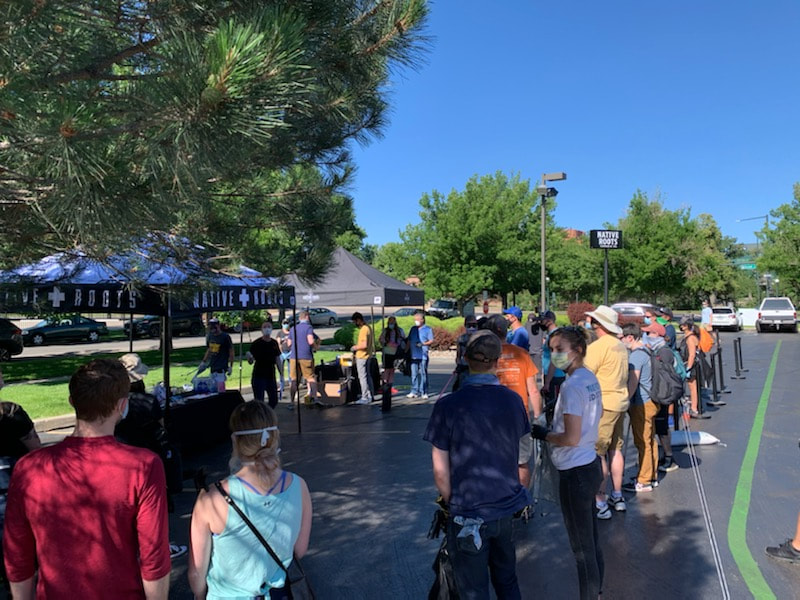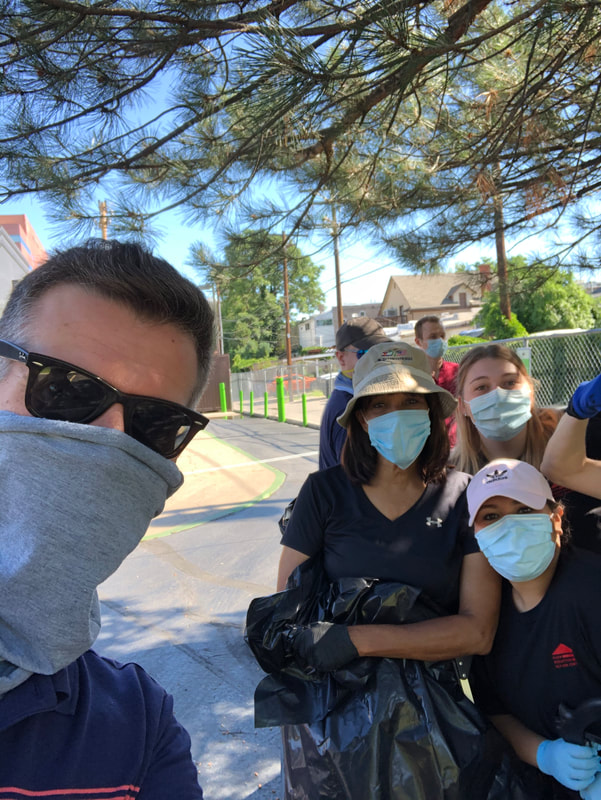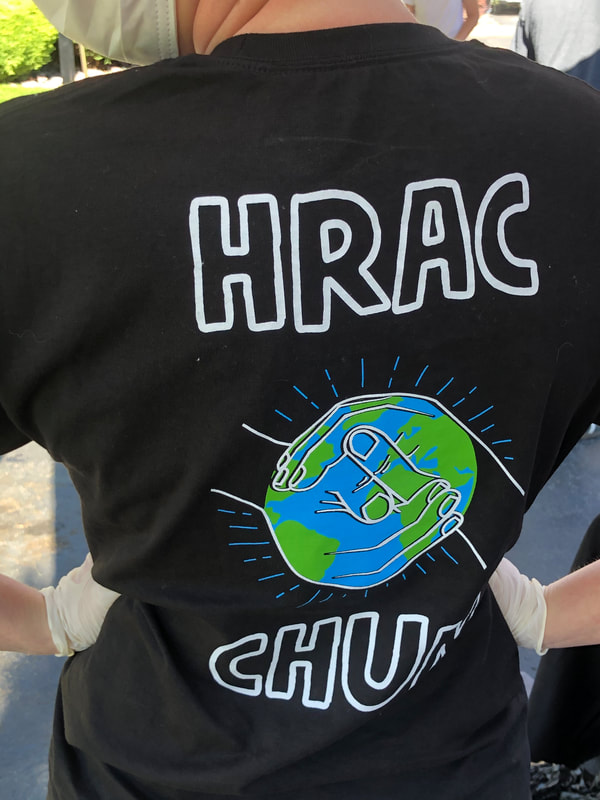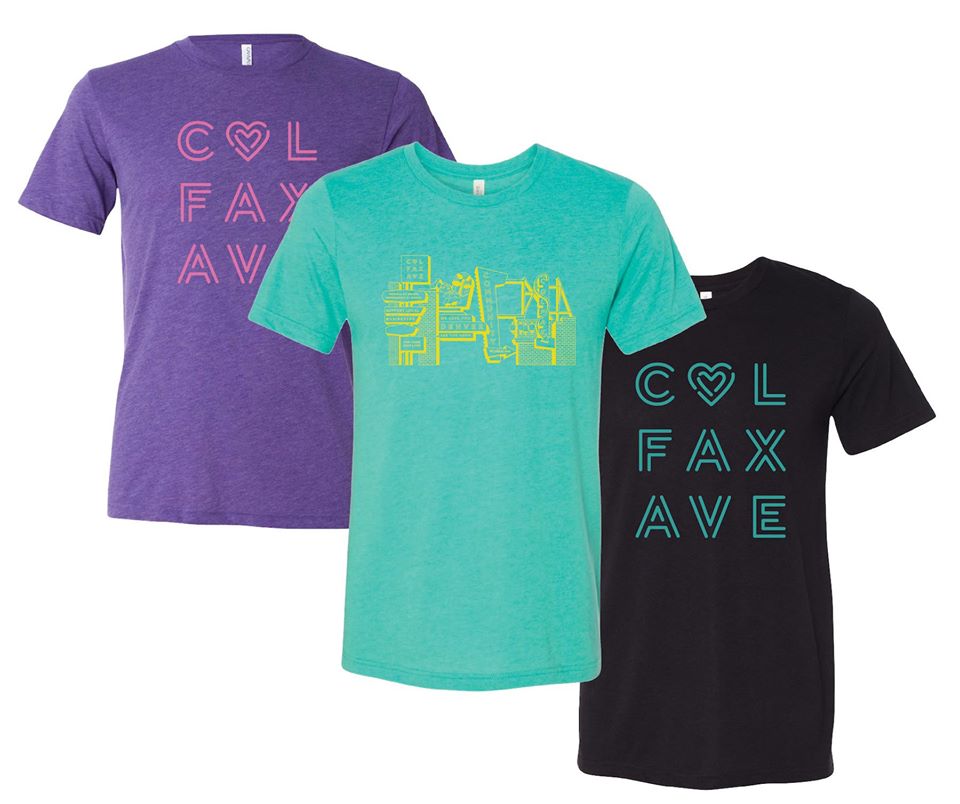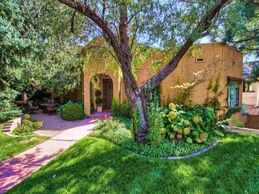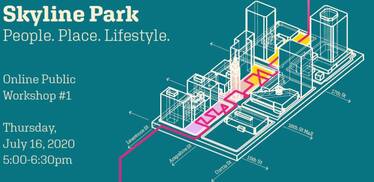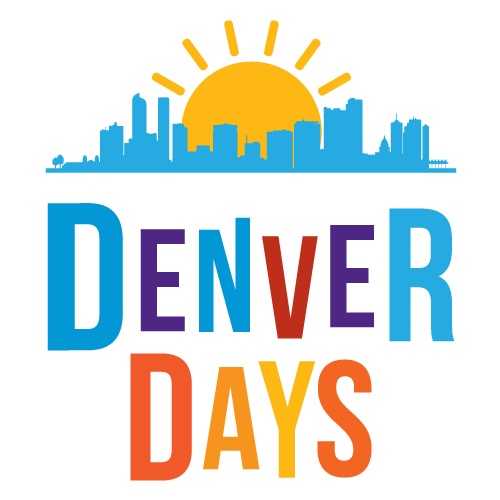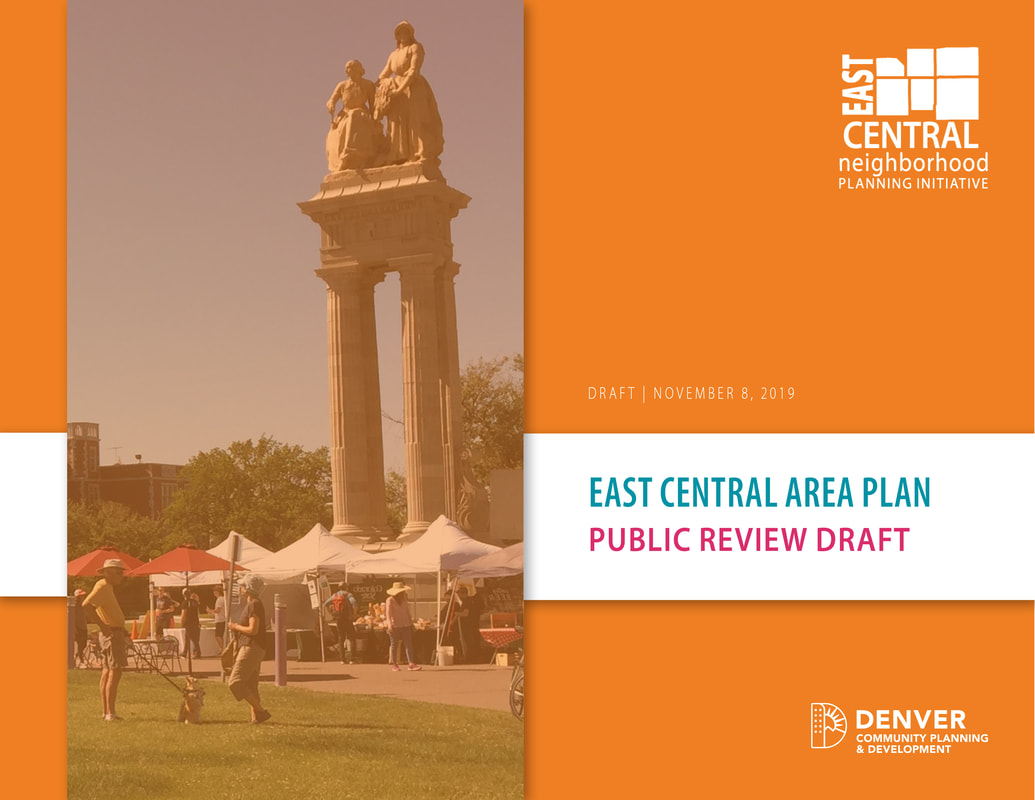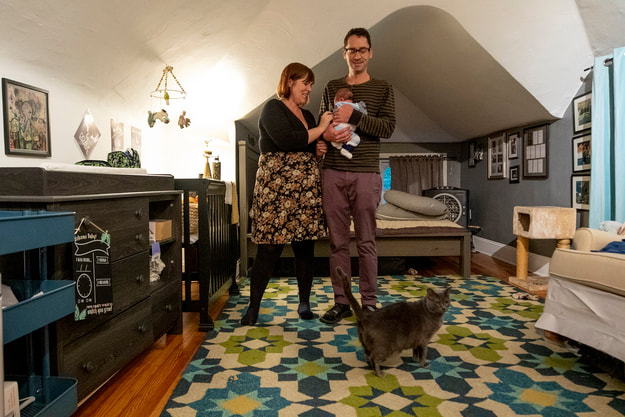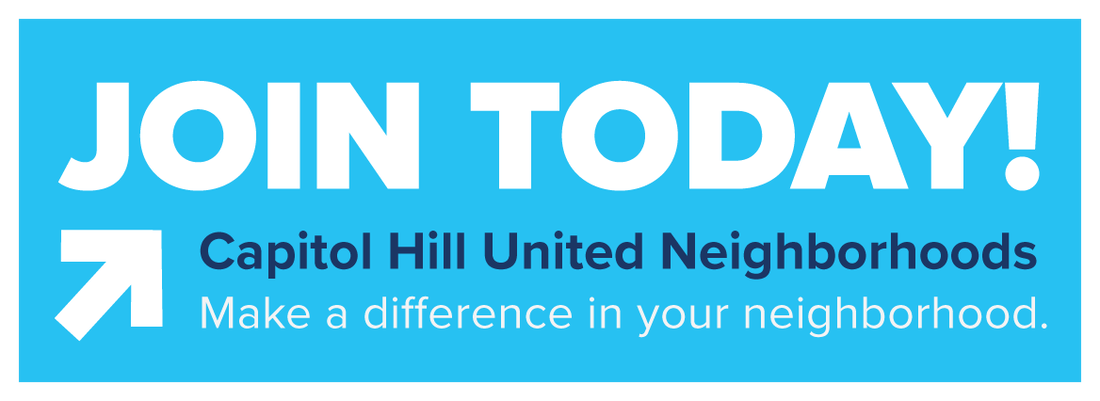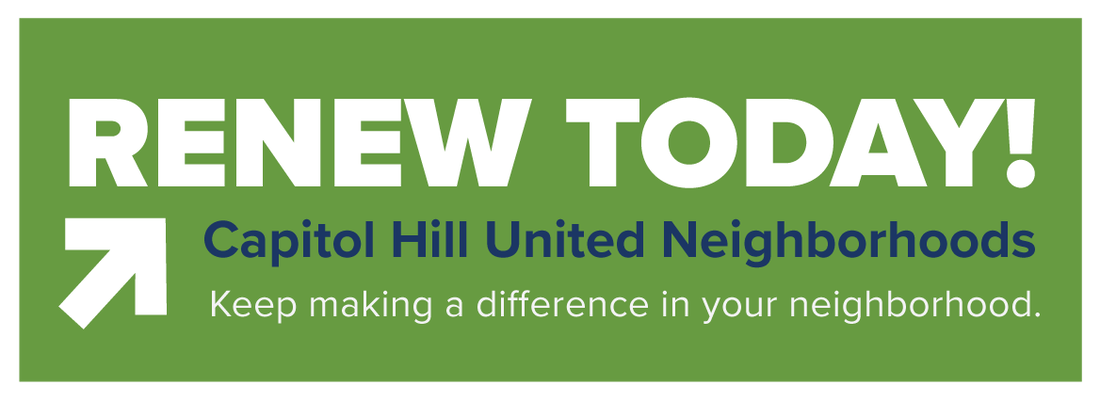Message From the President Greetings Neighbors and Supporters, The June 2020 edition of the Urban Dweller, Capitol Hill United Neighborhoods' (CHUN) monthly e-newsletter, is available online. Here is the latest from your registered neighborhood organization and advocate:
Black Lives Matter. Travis Leiker, MPA President | Capitol Hill United Neighborhoods, Inc. A Look Back: Tears-McFarlane House Once Housed the Cheesman Park Café Nearly forty years ago, the Tears-McFarlane House and Property was home to Colorado Free University, Parents and Friends of Lesbians and Gays (PFLAG), and other small businesses and local nonprofits. It was also home of the Cheesman Park Café. Should the CHUN planned unit development (PUD) be approved by Denver City Council, we hope to deliver another café concept soon. Member of the Month
Urban Land Conservancy Statement on Gentrification In Denver Aaron Miripol, President & CEO | Urban Land Conservancy The National Community Reinvestment Coalition (NCRC) just released a report entitled, “Gentrification and Disinvestment 2020.” On the report’s list of “Most Intensely Gentrifying Cities 2013–2017” Denver ranks second (#2), just behind San Francisco & Oakland and before Boston, with 27% of its eligible tracts (neighborhoods) gentrifying during that time period. While the total number of gentrifying neighborhoods in Denver is lower than other cities like New York and Phoenix, which rank 7 and 9, respectively, any number over zero is bad news from the perspective of Urban Land Conservancy and other organizations that work day in and day out to combat displacement and preserve affordability throughout Metro Denver and surrounding areas. There are many factors that lead to gentrification, including institutionalized redlining, chronic disinvestment, and measures to concentrate impoverished residents—primarily people of color. The NCRC report indicates that Opportunity Zones (OZ), a fairly new designation created by the Tax Cuts and Jobs Act of 2017 allowing for certain investments in lower-income areas to have tax advantages, heavily overlap with displacement. In fact, almost 69% of the neighborhoods identified as gentrifying were either within or adjacent to an OZ. To date, we have seen very few benefits for the residents in these OZ neighborhoods. When I began at Urban Land Conservancy in 2007, our most urgent need was to neutralize future displacement by purchasing properties along transit corridors in at-risk neighborhoods, or as we like to call it keeping residents “in-placement.” The Great Recession that occurred in 2008/09 was like kerosene on the fire for many of Denver’s already vulnerable neighborhoods with rampant foreclosures leaving communities open to an “investment grab”: the precursor to our receiving the #2 status in the aforementioned report. At that time, ULC, along with other local affordable housing providers, partnered to obtain federal Neighborhood Stabilization Program (NSP) dollars, which resulted in the preservation of several hundred homes in Metro Denver, including the Dahlia Apartments in Northeast Park Hill. NSP was also used for purchasing of land to support the development of future affordable housing. Sadly, the current COVID-19 pandemic is yet another dousing of kerosene enlarging the flame of an already wide gap between the supply (and demand) for affordable housing. To give you an idea of the numbers in Colorado before the pandemic, there were 157,858 extremely low-income households (household incomes of $20K), but only 43,787 available affordable rental homes, according to the National Low Income Housing Coalition. That means 76 percent of severely housing cost-burdened households are at a high risk of homelessness in Colorado. Conversely, for people living at 100% of the area median income (or with a moderate household income), there is a surplus of 103 units available per 100 needed, showing that the greatest need for housing is for those who are least likely to be able to afford them. Today, almost all of ULC’s 38 community investments are in neighborhoods that are still listed as vulnerable for displacement. To accomplish our goals, ULC uses our Community Land Trust (CLT) as a means to ensure long term neighborhood stability. We believe, more than ever, this is the best way to ensure that Denver moves off of the list of gentrifying cities. Community land trusts can be used for many types of development, including commercial and rental housing, which ULC provides. Most are used to ensure long-term housing affordability, like Elevation Community Land Trust, a nonprofit that ULC incubated. In all cases, a trust acquires land and maintains ownership of it permanently through long-term land leases, ensuring that properties remain affordable versus being swept up for use at market rates. ULC has a dedicated pool of loan funds to acquire properties and preserve them for neighborhood stabilization and permanent affordability: The Metro Denver Impact Facility (MDIF), which is supported by First Bank, Colorado Health Foundation, CHFA, Gates Family Foundation, The Denver Foundation, The Colorado Trust, Northern Trust, and Piton Foundation. Although substantial, this funding is not enough to address Colorado’s huge gap in affordable housing, nor is it enough to stave off acquisition of land for uses that will further displace low to moderate-income individuals and families. As we look to address emergency needs during this time of crisis, we need to refer to the notes of our not-too-distant past and awaken to the fact the time is NOW to secure land for long-term affordability. Otherwise, Denver may find itself at the #1 spot on NCRC’s next gentrification report. Welcome aboard DebbieThis month, the CHUN Board of Directors appointed Debbie Young as the newest Neighborhood 10 delegate.Debbie and her husband, Gary Stevens, have been residents of Congress Park for more than 14 years. They moved into Congress Park because of their desire to live in a community setting with historic homes, mature trees, parks, and walkability access to stores and restaurants. Having lived in both France and Switzerland, Debbie enjoys the lifestyle and small communities that these and other European countries enjoy and would like to ensure that Congress Park and other Capital Hill neighborhoods continue to offer this lifestyle to its community members. Debbie has a special interest in the lifestyle and care for the elderly and is a donor and a volunteer for the Colorado Alzheimer’s Association. She currently resides on the Denver Walk for a Cure marketing committee and is a team captain for a walk team. Debbie is currently a freelance technical marketing consultant after spending more than 20 years as a director of product marketing for Hewlett Packard Enterprise. She is a graduate of the University of Texas, Arlington, with a communications major and a business minor. She is currently studying for a French Major at the University of Colorado, Denver. She has a love for the outdoors and is an avid walker, hiker, snowboarder, scuba diver and loves to go camping. Debbie replaces Bill DeMaio who served on the CHUN board for more than a decade. Native Roots, Harm Reduction Action Center, and CHUN Team Up to Clean Up A Letter From Councilwoman Debbie OrtegaThank you for writing my office and for speaking up about police department funding in Denver. The killings of George Floyd, Ahmaud Arbery, and Breonna Taylor are tragedies and we know these tragedies were preventable. Those tragedies happened in other states but there is a history of similar events occurring in Colorado and I want to acknowledge that. Please consider reading this article in the Denver Post for a review of similar events that took place in our state. We must identify and enact changes within the structure of our city government, including the budget, to prevent future tragedies. I support the push for greater funding for social and public programming and the demands for greater accountability and equity from our government and our police force. Fighting for transparent and accountable government is why I got involved in politics in the first place and those values continue to motivate me every day. When we are marching through the streets or walking through the halls of government we are fighting together for equity and justice. The way Denver's government is structured means that the mayor has the primary role in allocating money. City Council can approve or reject the entire budget, generally with some discretion over minor adjustments. These budgeting decisions play out in the streets of Denver, impacting everything from trash collection to parking enforcement and police action. I absolutely support a recalibration of these budgets to emphasize social programs, including workforce development for folks who lost work due to COVID and providing food and housing to those most in need. Although council's budgeting power is limited, my work on council this year has focused on using my position as chair of the Charter Review Committee to rebalance power within city government. it is imperative that the legislative body (city council) has more impact. A first step is to require city council approval of mayoral appointees, including the police chief and manager of safety. City Council must also have greater investigatory power over actions taken within departments and agencies. I want these tools to give council another lever to make Denver government more responsive and transparent to residents. I want to reiterate that there are serious institutionalized processes of government that need to change. I will continue to work towards that end with urgency. Thank you again for writing and adding your voice to these issues during this unprecedented opportunity for real change. Your voice in contacting your elected officials is vital to keep this momentum going. Sincerely, Deborah "Debbie" Ortega Councilwoman At-Large Updates from the Denver Police Department's Latest Community Advisory Board Meeting (6/23/2020)One of our board members, Bruce Caughey, recently sat in on a call of the Denver Police Department's Community Advisory Board (virtual) meeting with Theresa Gillian and several officers from District 6. Councilman Hinds was also on the call. Here are a few highlights from the meeting:
Denver's Nonprofit Emergency Relief Fund for Non-Profits Available! The City and County of Denver has created a new grant opportunity to support nonprofits in Denver to continue critical programs and services for residents across a spectrum of needs. It is one of Denver’s economic initiatives to support the nonprofit community during the COVID-19 pandemic. What does this mean for nonprofits? The Nonprofit Emergency Relief Fund (NPERF) will provide one-time grant assistance up to a maximum of $15,000 per grantee to eligible Denver nonprofit organizations to alleviate financial impacts resulting from COVID-19. We’re anticipating three rounds of funding from June through December 2020. Application dates:
Who is eligible to apply? Colorado registered nonprofit organizations, including those with a nonprofit fiscal partner who are engaged in activities that are legal under Colorado and federal law. Your organization must be in good standing with local, state, and federal taxing and licensing authorities. This relief program is targeting nonprofit organizations experiencing financial hardships due to the COVID pandemic (increased demand, decreased income, new services). The organization need not be housed in Denver but must attest that the funds will be used to support residents of Denver. Learn more about Denver's Non-profit Emergency Relief Fund. Find information and resources about COVID-19 and recovery efforts in Denver. Contact us at [email protected], or 720-913-1552 if you have any questions. Support Colfax Avenue Businesses!
CHUN Committee Updates
CHUN History Matters Commitee
Upcoming Events Denver Department of Transportation & Infrastructure (DOTI) Hosting Virtual Meetings on City's Approach for Implementing 125 miles of New Bike Lanes
CENTRAL DENVER Join us online at our second open house to learn how you can provide input on the concept designs for the proposed bikeways in the Central Denver neighborhoods. Meeting flyers are available in both English and Spanish.
Join us online at our second open house to learn how you can provide input on the concept designs for the proposed bikeways in the South Central Denver neighborhoods.
Learn more about Community Transportation Networks online. Denver Streets Partnerships is a coalition of community organizations advocating for people-friendly streets in Denver. They believe in an equitable and vibrant Denver that guarantees our public spaces are designed for people, that human dignity should be the guiding principle for the design of our transportation system so that everyone can thrive and connect to what matters most, and work to connect decision makers and Denver residents with diverse perspectives, timely information, and practical solutions to reduce our city’s dependence on cars and design communities that prioritize people. Online Public Workshop #1 | Taller Público Virtual #1: Skyline Park Improvements Project
Share this event via Facebook, Nextdoor, or via web link. A sign language interpreter or CART will be provided upon request. Three business days’ notice is requested. Contact [email protected]. For any public accommodation requests, please contact [email protected]. For more information visit www.denvergov.org/theoutdoordowntown Únase a nosotros para el primer taller público en línea para reimaginar Skyline Park! Venga y cuéntanos sus historias favoritas sobre Skyline Park, y comparta su visión para futuras actividades y programación. El Proyecto de Mejoras del Skyline Park creará un nuevo diseño conceptual para las tres cuadras del parque y desarrollará un diseño para la construcción de la Fase 1, que se encuentra dentro del Bloque 2 (a lado de D&F Tower). Está financiado por el Programa de Bonos ‘Elevate Denver. Jueves, 16 de Julio 2020 | 5:00 - 6:30 pm Por internet, Zoom | https://bit.ly/2MQDyrR Comparta el evento en Facebook. Comparta el evento en Nextdoor. Comparta el evento por la página de web. Se le proporcionará un intérprete de lenguaje de señas o CART ha pedido. Se solicita un aviso de tres días hábiles. Póngase en contacto con [email protected]. Para cualquier acomodación pública, comuníquese con [email protected]. Para más información visite www.denvergov.org/theoutdoordowntown Top Neighborhood News Stories Denver Days 2020, Re-Imagined
These plans are in an effort to keep every Denver resident safe and healthy, which is our priority always, so the City of Denver will not be issuing permits for road closures, providing free barricades, or encouraging public gatherings in parks for Denver Days 2020. Denver Days was created in the spirit of neighbors getting to know neighbors, helping out in your community, and coming together to celebrate one another, and we believe Denver Days 2020 will still fill Denver residents with that same sense of joy and connection. We hope to return to the traditional Denver Days format next summer, but for now, we are looking forward to dancing with you (from a distance) in the streets August 1st – 9th. Please share this with your friends, neighbors and networks! Parade Routes and event schedules will be available soon, along with more event details. For parade routes and additional information please visit: https://www.denvergov.org/content/denvergov/en/denver-days.html For questions regarding Denver Days email: [email protected] #DenverDaysAtHome #DenverDaysReminagined #DiasdeDenver #LoveThisCity East Central Area Plan: Draft 2 Available Online
Now available on the Plan page:
Along with the spreadsheet above, visitors to the page can review all the comments submitted at the open house in November, comments submitted via the general feedback form and comments submitted by email, along with staff responses to each. To learn more, read the latest newsletter and follow Denver Community Planning and Development on Twitter for updates. Support for Group Living in Denver GrowsDenver is growing and a number of our Capitaol Hill neighbors have recently submitted letters to CHUN supporting a broad overhaul of the Denver Zoning Code to allow for an increase in the number of non-family members to occupy a home as part of what is called "Group Living". As quoted in the Denverite article, "Sarah Wells, a member of the Group Living Advisory Committee who shares a Capitol Hill home with other adults, said she hoped City Council in the next few months would hear from a wider range of Denverites, and “from more people that are supportive of group living as a means to accessible housing.” Read the full article on Denverite.com. Although a number of residents support group living in order to support more diverse, affordable housing, there are some who oppose the change citing a concern in increased crime and lowered property values. There are also a number of local organizations who support the change, including:
Updates on Group Living From Denver City Planning After two years of work with community members, city planners are nearing completion of a broad overhaul of the Denver Zoning Code’s residential use regulations that will increase housing opportunities and flexibility for all residents. The city's response to the COVID-19 project has affected the project timeline, but staff continues to work on ways to engage the public in the process while observing the city's evolving health guidelines. Next Steps: The Group Living Advisory Committee met virtually Wednesday, May 27 and discussed potential updates to the group living proposal based on community feedback. Download the meeting presentation and view a recording of the meeting (use this case-sensitive password: Denver2020). Additional updates will be posted on the Denvergov.org website in the coming days. New Virtual Exhibition Released From Kirkland Museum of Fine & Decorative ArtKirkland Museum of Fine & Decorative Art invites virtual visitors to enjoy another “byte” in its fifth virtual exhibition, Art in Small Bytes 2.0, available online today. The museum returns to the earlier Art in Small Bytes concept to break down a vignette grouping of period objects and artworks into smaller pieces. “Kirkland Museum is excited for the opportunity to continue engaging with our audience in this way during our temporary closure,” says Associate Museum Director Renée Albiston. “Although we are working with limited staff, the museum remains committed to supporting our mission in providing educational content and it brings us joy to know we’re keeping art history alive despite our current circumstances.” Read the full press release. Learn more about the virtual exhibition. Also In The News
Business
A Special Thanks to Some of Our Business and Community Partner Members: |
The Urban Dweller is published on the first, working Monday of each month. To submit your content via email, please click on the button below. Content is due by the 25th DAY of each month.
|
Business and Community Partners |
|
|
© Capitol Hill United Neighborhoods, Inc.
All Rights Reserved
All Rights Reserved
